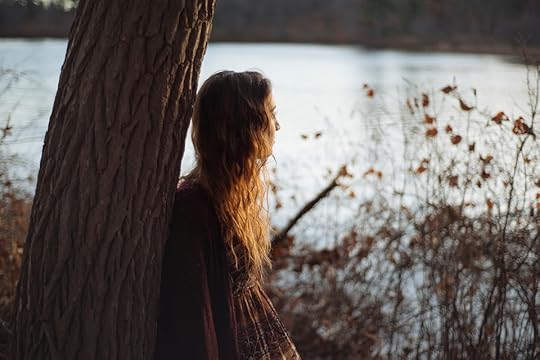Do You Know Your Place in the World? (And Why It Matters)�� ��

Do you know where you stand among the seven billion people who live on this planet?����
It���s an interesting question, especially for us overfed Westerners. For me, it���s been a long, slow journey to��understand��that there actually��are��other people in the world.����
It���s��like this��great old New Yorker cover, painted��by��Saul Steinberg.��
To the average myopic New Yorker, the world beyond the Hudson River is a narrow stretch of corn belt followed by a shred of California, the Pacific, then��far, far away ��� the rest of the world.����
In the busy swirl of our lives, can we seriously take the time to wonder about, say,��the��million-plus��migrants��trying��desperately to��save their own lives?��Or��the hundreds of girls and women��Boko��Haram��abducted��who��are being forced to become suicide bombers?����
How about the homeless and destitute right here in our own home towns?��Or the millions of young black men trapped in the school to prison pipeline?��Can we really ���get��� what they are going through?��
Do we even really care?��
Our crafty minds kick in:��why should we care? That���s happening��somewhere else,��maybe��a million miles away.����
It���s really not our concern, we tell ourselves.��
Truthfully, it���s not time or even distraction that���s the issue��here. We��remain myopic to the dilemmas of the rest of the world because��in the Western world,��we live in a highly privileged society.��Our needs are met. We have��abundant��food, homes, water. We have shopping malls, air conditioning, fast food��and catering apps. We have��time to listen to the news, fret about politics or global warming, and attend protests.��
Not surprisingly,��millions��of people would love to be in our shoes.����
It is painful��to acknowledge��this, because to do so brings up stuff:��a sense of��privilege, and the shadowy feeling that it is��not earned.��Then there���s entitlement and guilt.����
We���d��have to acknowledge��all��the suffering in the world, which is vast.����
And we are small.��
How can we possibly hold all this pain? A feeling of complete and utter hopelessness��washes over us��when we consider it�������So��we pull out our phones to see who called, or texted, or emailed, or pinged us on social media.��We consider a quick game of Words��With��Friends.��
We��avoid��the singular awareness that we are part of a vast sea of humanity ��� one that shares common problems��across the globe,��as well as��the��local ones.��
That awareness, once truly seized, invites a sense of responsibility. Once we are touched by truly understanding another person���s plight, our hearts open up.��We can���t help it — it���s simply what we do.��
Here���s what is truly interesting:��it turns out we are all suffering.����
That���s what being a human is really all about.����
While we may not be suffering on the scale of a displaced migrant who���s lost everything and has been living in a refugee camp for the last year, we may be living in an empty marriage. Or our children won���t speak to us. Or we���re sick, or our parents are sick ��� or our �������
You get the point.����
Within that chrysalis of suffering, we are all being re-formed. Like precious metal we are being melted down, and so can once again live, free from our prior restraints. This is what suffering actually does for us.��
For me, I emerged from my own period of huge loss with my senses on high alert.��Now I���m��still basically raw,��even though it���s been��more than five��years since my daughter���s death. So ��� yeah. Now I do feel my place in the world, and all the responsibility that comes with it.��I���m hoping I always will.��
It���s like being an overly peeled onion.��So��I feel far, far more connected to the rest of my fellow��denizens of this planet.����
At the same time, I���m no longer caught in my own little survival scenario. The bottom already dropped out once, so now there���s room to stop, breathe and look around.��This is the true privilege of crisis.��
When you realize this, your own story��becomes��a bore. Meanwhile,��the rest of the world matters far more than you��could have expected.��For me,��I���ve��become aware of something far bigger than just me — the fantastic web of humanity that surrounds us all.����
It���s true.��We��are��all connected: You, me and the guy who just gave us the finger on the highway. Likewise for our IRS auditor, our kid���s homeroom teacher, and an incarcerated person on the other side of the city you��will probably never know.����
They matter just like we matter. How do I know this?����
Sometimes, just occasionally,��I read the paper and I cry. That���s really all I have to go on.��
Today, just for a moment, try to imagine��that��you are far more powerful than you realize. That your big, beating heart really can help save the world, in some small, considered way.��And that you are intrinsically connected to every other person under the sun.��
All you have to know is where you stand in this great cosmic web of life.��It is, indeed, a place of power.��
��
��
Are you a listener of Suzanne��Falter���s Before the Afterlife Podcast?
We welcome you into the��Before the Afterlife Facebook ��Group! This is a place where you can discuss your thoughts and feelings after listening each new episode or really at any time you feel so inclined! We want to make this a relaxed hangout and a safe space where you can share your hopes and fears, lessons and questions, cravings and frustrations.��Join here.
The post Do You Know Your Place in the World? (And Why It Matters)�� �� appeared first on Suzanne Falter.




